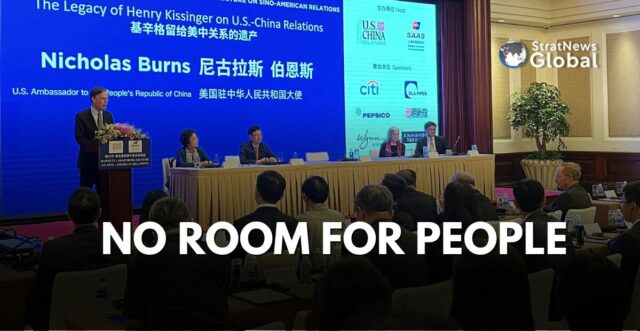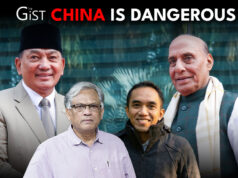China’s foreign ministry described as “far-fetched” remarks by U.S. Ambassador Nicholas Burns, stating they diverged from key understandings reached by the presidents of both nations.
Controversial Accusations
A widely circulated Wall Street Journal report indicated that Burns accused Beijing of making people-to-people exchanges between China and the U.S. “impossible.” Burns claimed that mainland officials interfered in 61 public events organized by the U.S. embassy in Beijing since November. He stated that Chinese officials pressured citizens to stay away or intimidated those who attended these events.
China’s Response
Foreign ministry spokesperson Mao Ning responded during a regular briefing, saying, “It is not in line with the correct way for China and the United States to get along with each other and is not conducive to the healthy and stable development of bilateral relations.” Mao added that Burns’s remarks “deviate from the important consensus reached by the two heads of state.”
November Summit Consensus
Referring to the meeting in San Francisco last November, where Chinese President Xi Jinping and U.S. President Joe Biden discussed strained ties, Mao emphasized, “Ambassador Burns’s remarks are not true and deviate from the important consensus reached by the two heads of state.”
Commitment to Mutual Respect
Mao reiterated China’s stance, stating, “China has always developed its relations with the United States in accordance with the principles of mutual respect, peaceful coexistence, and win-win cooperation put forward by President Xi Jinping.” She further noted China’s commitment to promoting cultural exchanges between the two nations.
The disagreement over Ambassador Burns’s claims highlights ongoing tensions between the U.S. and China. While China maintains its commitment to mutual respect and cooperation, accusations of interference in people-to-people exchanges continue to strain diplomatic relations.
With Inputs from Reuters
Research Associate at StratNewsGlobal, A keen observer of #China and Foreign Affairs. Writer, Weibo Trends, Analyst.
Twitter: @resham_sng





